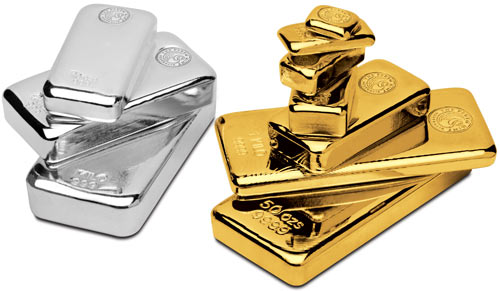Before the ink could even dry on West Virginia Governor Jim Justice’s signature on a repeal of sales taxation on gold, silver, platinum, and palladium bullion and coins, legislators in Wisconsin and Maine introduced similar measures in their own states. All told, 39 states have now reduced or eliminated sales taxes on the monetary metals, and Wisconsin, Maine, Kansas, Arkansas, Minnesota, and Tennessee are all actively considering bills of their own this month. West Virginia’s Senate Bill 502 enjoyed tremendous popularity, passing through the State Senate unanimously before passing out of the House 90-9. Starting July 1, investors, savers, and small businesses in the state are no longer required to pay sales and use
Topics:
Jp Cortez considers the following as important: 6) Gold and Austrian Economics, 6a) Gold & Bitcoin, Featured, Gold Standard, newsletter
This could be interesting, too:
RIA Team writes The Importance of Emergency Funds in Retirement Planning
Nachrichten Ticker - www.finanzen.ch writes Gesetzesvorschlag in Arizona: Wird Bitcoin bald zur Staatsreserve?
Nachrichten Ticker - www.finanzen.ch writes So bewegen sich Bitcoin & Co. heute
Nachrichten Ticker - www.finanzen.ch writes Aktueller Marktbericht zu Bitcoin & Co.
 Before the ink could even dry on West Virginia Governor Jim Justice’s signature on a repeal of sales taxation on gold, silver, platinum, and palladium bullion and coins, legislators in Wisconsin and Maine introduced similar measures in their own states.
Before the ink could even dry on West Virginia Governor Jim Justice’s signature on a repeal of sales taxation on gold, silver, platinum, and palladium bullion and coins, legislators in Wisconsin and Maine introduced similar measures in their own states.
All told, 39 states have now reduced or eliminated sales taxes on the monetary metals, and Wisconsin, Maine, Kansas, Arkansas, Minnesota, and Tennessee are all actively considering bills of their own this month.
West Virginia’s Senate Bill 502 enjoyed tremendous popularity, passing through the State Senate unanimously before passing out of the House 90-9. Starting July 1, investors, savers, and small businesses in the state are no longer required to pay sales and use tax on the exchange of dollars for the monetary metals.
Earlier this week, Representative Justin Fecteau (R – Augusta) of Maine introduced LD 1446, a measure to repeal sales taxes on precious metals, saying, “Seven years since his 2012 run for President, the monetary policy lessons of Congressman Ron Paul still stick out to me. This bill is an important first step to restore sound money in Maine by refusing to tax the conversion from one legal tender to another.”
And Wisconsin State Representative Shea Sortwell (R – Two Rivers) today introduced his measure to end the taxation of money on the anniversary of President Franklin Roosevelt’s controversial gold ban 86 years ago.
“On April 5th, 1933, President Franklin Roosevelt made the disastrous decision to confiscate individuals’ private gold holdings through Executive Order 6102. American citizens were forced to turn in their gold under the threat of ten years in prison. Shortly after, the price was arbitrarily raised over 50%, a shocking theft of wealth from the American people,” said Sortwell.
“Wisconsinites ought to have the choice and freedom to use alternative currencies and money without being taxed for it — and this bill would put our precious metal sellers on an even playing field with our Midwest neighbors.”
Meanwhile, West Virginia Congressman Alex Mooney (R-WV) is doing his own part to end federal income taxation of sound money.
Mooney’s Monetary Metals Tax Neutrality Act (H.R. 1089) would “clarify that the sale or exchange of precious metals bullion and coins are not to be included in capital gains, losses, or any other type of federal income calculation.”
To be sure, the out-of-control spending and debt embraced by many politicians is directly undermining the value of the dollar and our savings, but momentum is building, particularly in the states, to restore sound money in America.
Tags: Featured,newsletter
